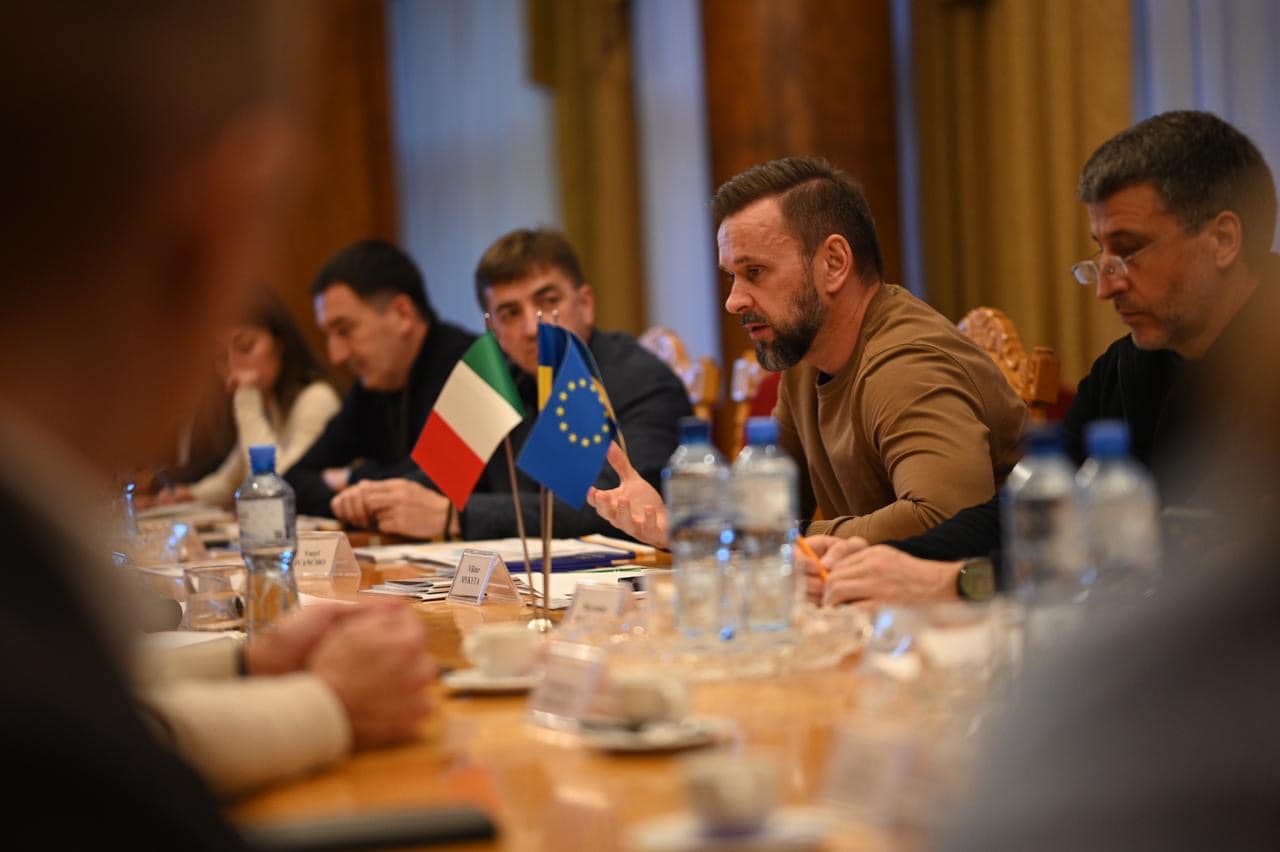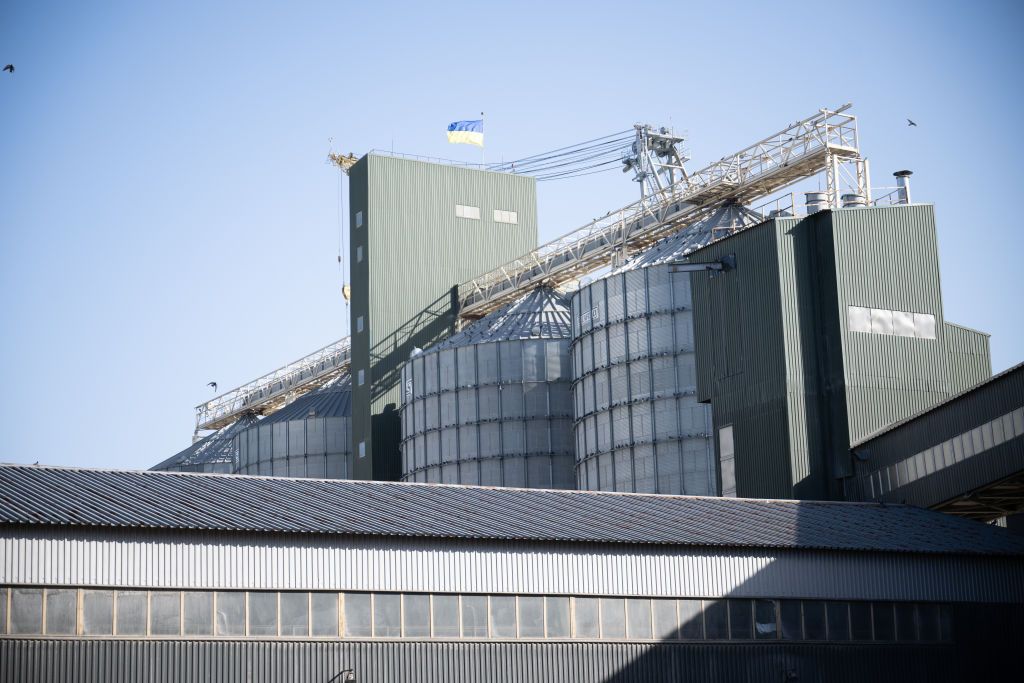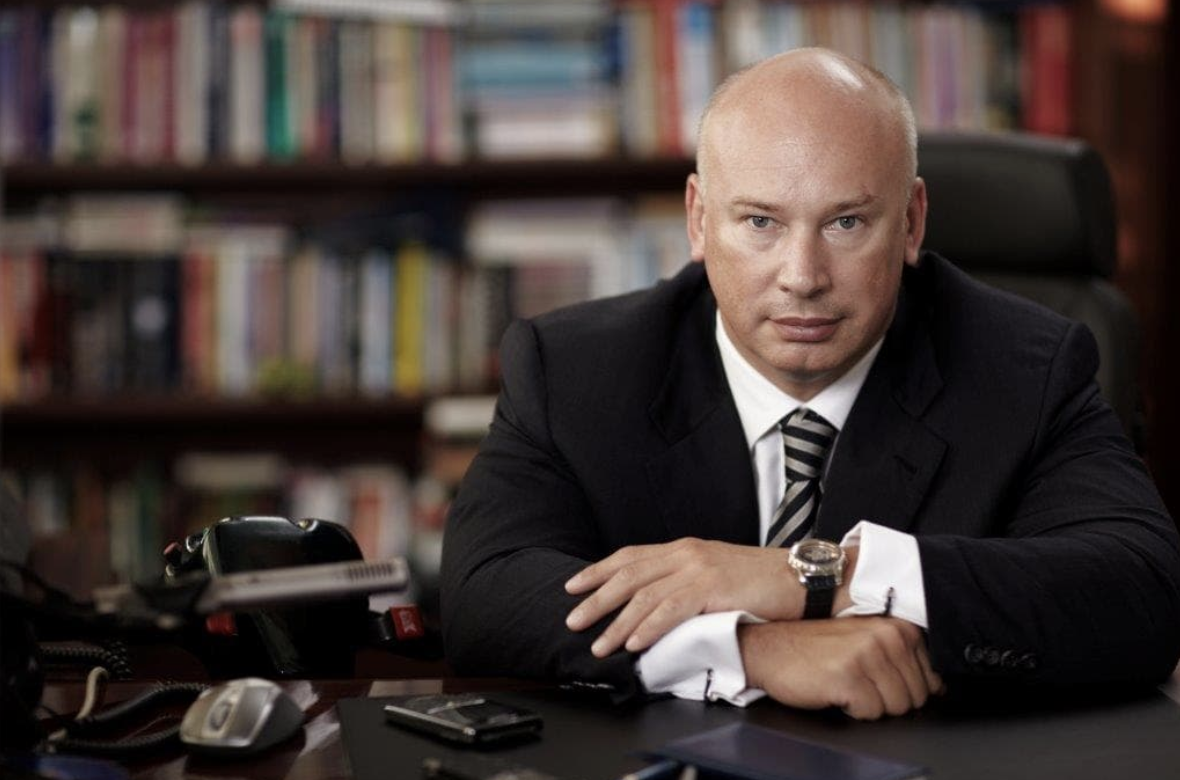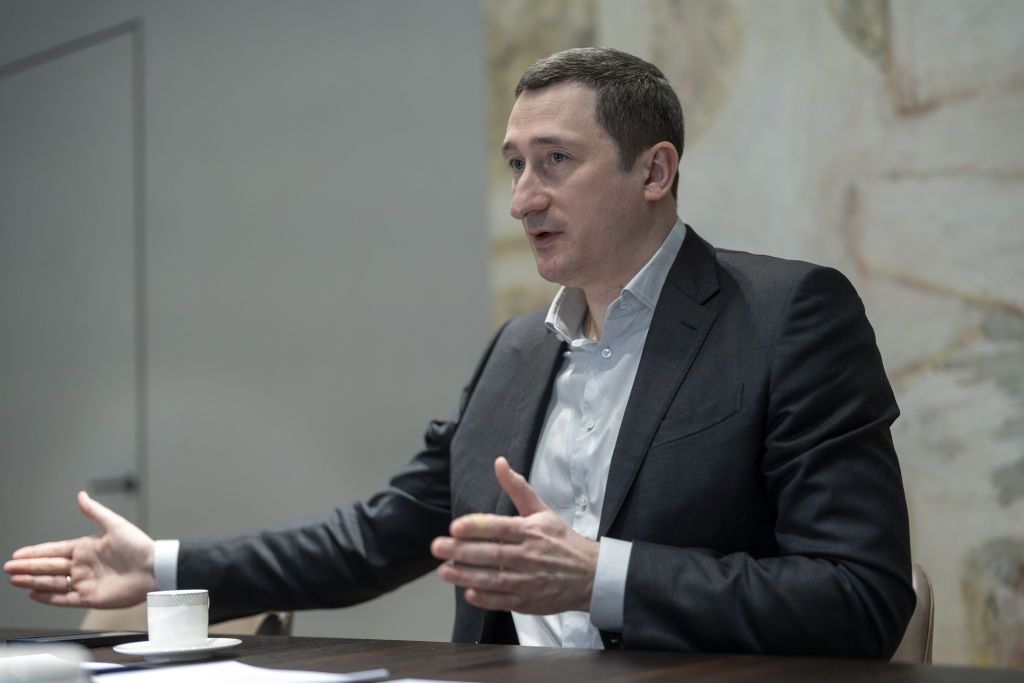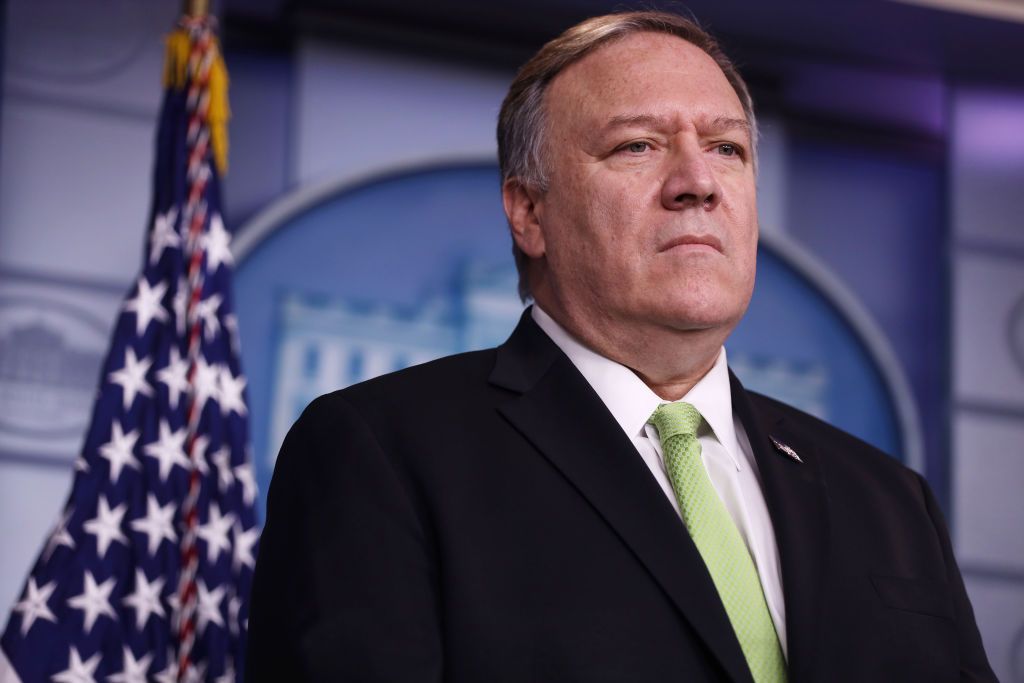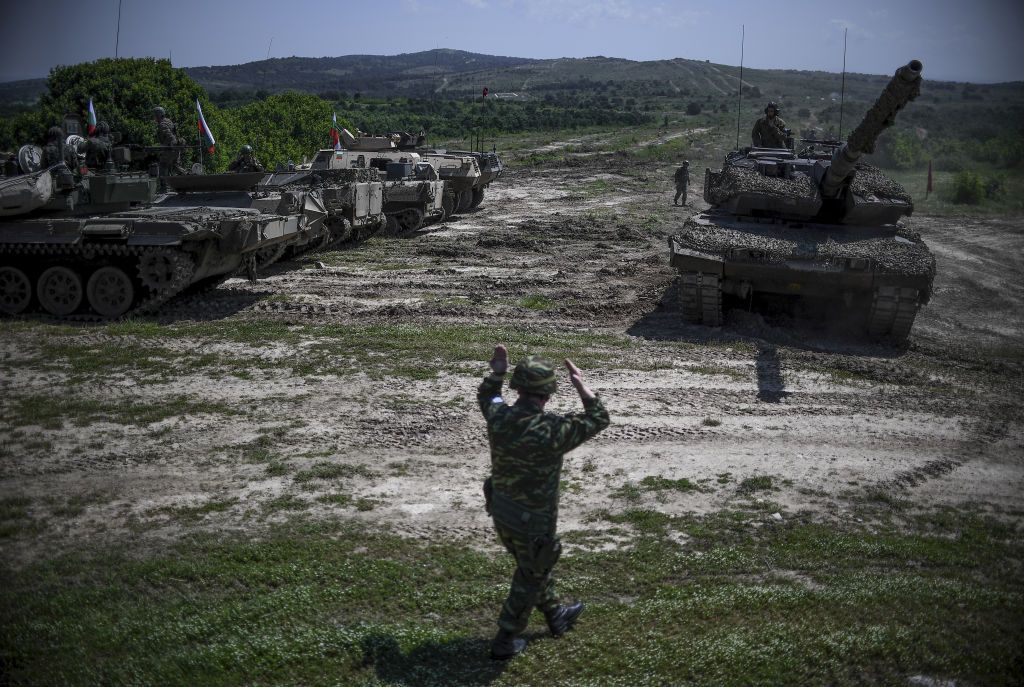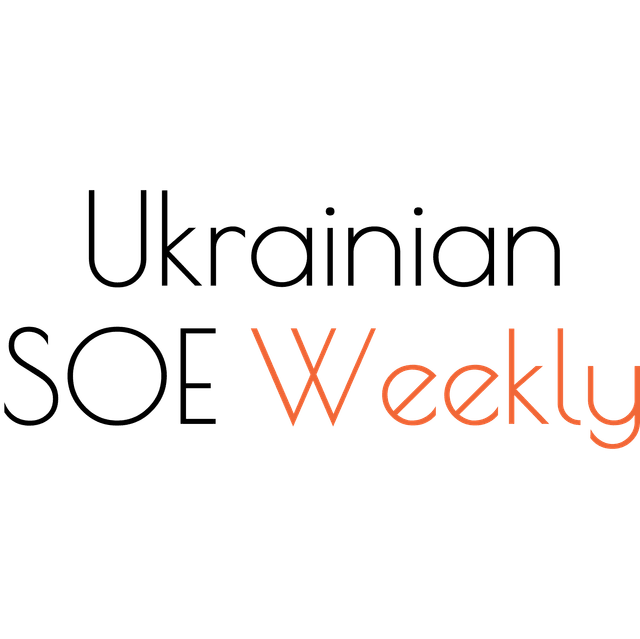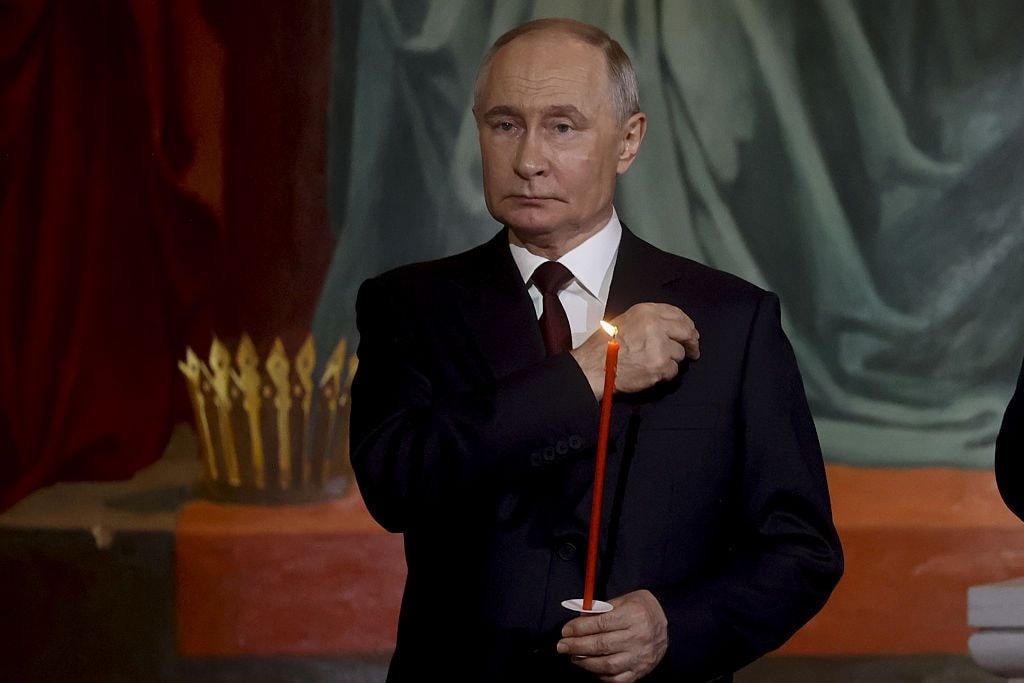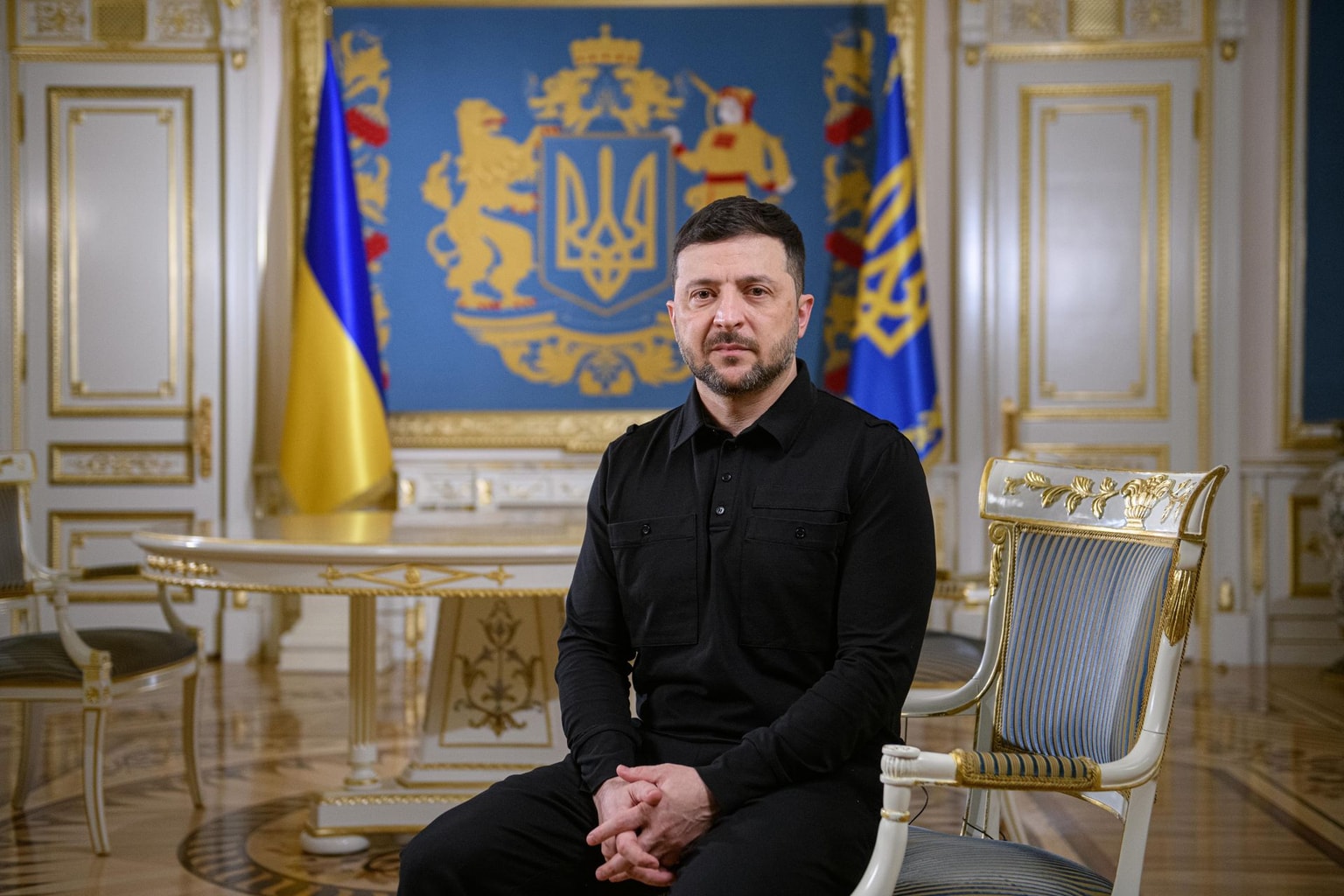Ukraine state-owned enterprises weekly — Issue 111

Editor’s Note: This is issue 111 of Ukrainian State-Owned Enterprises Weekly, covering events from Nov. 11-17. The Kyiv Independent is reposting it with permission.
Ukrainian SOE Weekly is an independent weekly digest based on a compilation of the most important news related to state-owned enterprises (SOEs) and state-owned banks in Ukraine. This publication was produced with the financial support of the European Union within the project “Supporting Ukraine in rebuilding and recovery” implemented by the KSE Institute. The contents of this publication are the sole responsibility of the editorial team of the Ukrainian SOE Weekly and do not necessarily reflect the views of the European Union.
Corporate governance of SOEs
Cabinet approves Ukraine’s action plan to implement OECD’s program for Ukraine. On Nov. 3, the Cabinet of Ministers brought the OECD’s action plan for Ukraine closer towards fruition. We selected the key points regarding SOEs.
The action plan matches the projects stated in the four-year Country Program launched by OECD and the Government of Ukraine on June 7. See Issue 92 for more detail.
Policies to improve the financial market and corporate governance in 2024-2025 will be reviewed. The National Securities and Stock Market Commission (NSSMC), the Economy Ministry, the Finance Ministry, the State Property Fund (SPFU), the National Bank of Ukraine, and other central executive bodies are to provide information at the OECD’s request.
In 2023-2024, the Economy Ministry, the SPFU, the NSSMC, and the National Agency for the Prevention of Corruption should build more capacity to carry out recommendations from the OECD Review of the Corporate Governance of State-Owned Enterprises in Ukraine.
The plan also entails improving cooperation between the Ukrainian government and OECD’s Corporate Governance Committee and its Working Group on State Ownership and Privatization Practices. To do this, the Cabinet should submit letters to OECD for joining the Committee and Working Group, respectively. No deadlines are specified.
One more point is the adherence to the Recommendation of the OECD Council on Guidelines on Corporate Governance of State-Owned Enterprises in 2024. To do this, Ukrainian laws should be aligned with the provisions of the Recommendation.
In practice, this means adhering to the OECD Guidelines on Corporate Governance of State-Owned Enterprises. Ukraine requested adherence to these Guidelines in 2020.
Oschadbank’s supervisory board starts work. On Nov. 14, the supervisory board of Oschadbank started its work and elected Volodymyr Lavrenchuk as its new chairman.
As we reported in Issue 85, the Cabinet appointed four new independent members of Oschadbank’s supervisory board back in April 2023. It is unclear why the board needed seven months to start its work only now.
The new board members appointed in April were Michał Krupinski, Volodymyr Lavrenchuk, Elisabeth Nelson, and Philip Heasley. Two other independent members, Juan Enrique Perez Calot and Anton Piatygin, retained their positions on the supervisory board from the previous term. See Issue 85 for more detail.
According to Oschadbank, the supervisory board also includes three state representatives: Yulia Pashko (nominated by the Finance, Tax, and Customs Committee of the Verkhovna Rada), Rosa Tapanova (nominated by the Cabinet of Ministers), and Oleksandr Rodnyansky (nominated by the President of Ukraine).
According to the Cabinet’s ordinance on the appointment of independent members, they were appointed for a three-year term commencing after all independent members assume office. However, according to the banking law, supervisory board members of banks take office after their candidacy is approved by the National Bank of Ukraine (NBU).
As per the NBU’s Licensing Regulation, the approval procedure for banks’ senior officers may take up to 90 days, starting from the day the bank submits a complete package of documents to the NBU. Additionally, individuals who are reappointed to their positions are not required to seek NBU’s approval according to the banking law.
According to the NBU’s database:
- Volodymyr Lavrenchuk was approved by the NBU on July 24 and took office on July 27 – that is, three months after being appointed by the Cabinet of Ministers.
- Michal Krupinski and Elisabeth Nelson were approved by the NBU on Aug. 14 and assumed office on Aug. 16 – that is, more than three months after being appointed by the Cabinet.
- Philip Heasley was approved by the NBU on Nov. 1 and took office on Nov. 2 – that is, more than six months after being appointed by the Cabinet.
It is unclear why seeking or obtaining approval for Heasley took so long.
Juan Enrique Perez Calot and Anton Piatygin, who were reappointed as independent board members, did not require NBU’s approval. As indicated in the NBU’s database, they continued in their positions.
According to Oschadbank’s website and the NBU’s database, state representatives also continued to serve on the new board and assumed their offices.
Therefore, as of Aug. 16, Oschadbank’s supervisory board already comprised eight members, including five independent members, who assumed their office. Since the board was competent and quorate, it is unclear why it needed to wait three more months to commence its work. It is also unclear whether the supervisory board members have been paid during this period.
Oschadbank said that Lavrenchuk has 36 years of experience in the banking industry, including 27 years in top management at Oschadbank and Raiffeisen Bank Aval. Since 2020, Lavrenchuk has been the country manager at NEQSOL Holding’s Ukraine office, focused on investment activity and asset portfolio management, and a member of the supervisory board of Vodafone Ukraine.
Oschadbank’s supervisory board also elected the following chairs of board committees:
- Elisabeth Nelson – Risk and Compliance Committee;
- Juan Enrique Perez Calot – Audit Committee;
- Volodymyr Lavrenchuk – Nomination and Remuneration Committee;
- Oleksandr Rodnyansky – Strategy and Transformation Committee.
Energy sector
Ukrnafta’s CEO says the company doubled revenues in the first year under the state management; no financial statements or other official reporting available. On Nov. 14, Ukrnafta’s CEO Sergii Koretskyi said on his Facebook page that in the first year after the company was seized by the state, it projects Hr 95 billion ($2.6 billion) in revenue, which would double the average annual figure over the past decade.
According to Koretskyi, Ukrnafta’s net profit for the first half of 2023 was Hr 14.1 billion ($392 million). As of today, the net profit has exceeded Hr 20 billion ($556 billion).
“This is much more than in previous years. For comparison, the cumulative result for the previous 10 years was billions in losses,” Koretskyi said.
We have not been able to find Ukrnafta’s audited financial statements for 2021, 2022, or the first half of 2023 in the public domain to verify the above information.
According to Ukrainian law, joint-stock companies, particularly those publicly traded, are obligated to publicly disclose various types of information, such as their financial statements.
However, after the beginning of Russia’s full-scale invasion, the National Security and Stock Market Commission (NSSMC) allowed companies to withhold such disclosure. In June, the NSSMC decided that this exemption would be effective until Jan. 1, 2024. After that date, joint-stock companies must resume public disclosure of the above information, including information that was not disclosed during the exemption period.
Koretskyi added that the company also paid Hr 12.3 billion ($342 million) in taxes in the first half of 2023, including Hr 3.3 billion ($92 million) in income tax. According to him, Ukrnafta plans to pay Hr 27 billion ($751 million) in taxes for the twelve months of 2023, including about Hr 5 billion ($139 million) in income tax.
“For comparison, over the past 10 years, the company paid Hr 12 billion ($333 million) in income tax. Accordingly, in 2023 alone, the company would transfer five times more funds to the state budget than the annual average for 2012-2021,” Ukrnafta’s CEO claimed.
However, Ukrnafta’s plans to increase the production of oil, the company’s major product, by 6% in 2023 compared to 2022 would not materialize, Koretskyi added. Oil production will increase, but it will be lower than expected. At the same time, gas production will exceed the planned indicators, he said.
Koretskyi did not specify what production or growth is forecast for either oil or gas as of now.
According to Koretskyi, Ukrnafta is preparing to pay at least Hr 6 billion ($166 million) in dividends for 2023. He explained that this amount was computed at the minimum rate of 30% of net profit (set by law) and will be determined by the shareholders’ decision (who can go for a higher dividend pay-out rate), which would be higher than the total result of the last 10 years.
As we wrote in SOE Weekly’s Issue 90, Ukrnafta’s financial plan for 2023, approved by the Cabinet of Ministers, expects Hr 74 billion ($2 billion) in net income from operations, Hr 12 billion ($333 billion) in net profit, and Hr 25 billion ($696 million) in tax payments.
In May, Koretskyi also said that Ukrnafta earned about Hr 7 billion ($195 million) in net profit in January-April 2023. This figure was likely unaudited. We have not been able to find the respective financial statements in the public domain.
As we wrote in Issue 100, in his analysis for Forbes Ukraine, CASE Ukraine’s economist Vasyl Povoroznyk contested Koretskyi’s statements on the company’s quarterly profits, lower costs, higher production, and transparency.
He concluded that Ukrnafta’s financial performance was driven by two factors: higher market prices for petrol and diesel (45% and 54%, respectively) and Ukrnafta’s sale of gas which the company received as repayment of part of Naftogaz’s historical debt to Ukrnafta.
Povoroznyk also said that the financial reporting disclosed by Naftogaz – Ukrnafta’s majority shareholder who includes Ukrnafta’s reporting in its consolidated reporting – did not square with numbers named by Koretsky.
In Issue 68, we reported that the shares of Ukrnafta, Ukrtatnafta, Motor Sich, AvtoKrAZ, and Zaporizhzhiatransformator (ZTR) were seized “for the needs of the state” and transferred to the Defense Ministry on Nov. 6, 2022. Former CEO of the WOG chain of petrol stations, Sergii Koretskyi, became the CEO of both Ukrnafta and Ukrtatnafta on Nov. 8 and Nov. 10, 2022, respectively. See Issue 68 for detail.
Naftogaz keeps taking over Firtash gas distribution companies. On Nov. 13, Gas Distribution Networks of Ukraine LLC (Gazmerezhi brand), a Naftogaz subsidiary, reported that Zakarpatgaz came under state control and joined Naftogaz Group.
According to Gazmerezhi, Zakarpatgaz is the 19th regional gas distribution company to come under state control since the beginning of the year.
Zakarpatgaz supplies gas to 278,000 households and more than 4,000 legal entities. Tariffs, personal accounts, and payment details remain unchanged for residents of Zakarpattia Oblast.
Zakarpatgaz was part of fugitive tycoon Dmytro Firtash’s Regional Gas Company (RGC) Group.
In SOE Weekly Issue 71, we reported that Naftogaz changed the management of regional gas distribution companies Kharkivgaz and Dniprogaz on Jan. 16. These gas distribution companies were part of Firtash’s RGC Group.
RGC accused Naftogaz of an “attempted raid." In response, Naftogaz referred to the Cabinet of Ministers’ Decision No. 429-r dated May 28, 2022, which transferred the corporate rights of about 20 regional gas distribution companies to its subsidiary Chornomornaftogaz.
Earlier in May 2022, Kyiv’s Pechersk Court seized shares of Firtash’s regional gas companies because they evaded payment for the use of gas networks. (After that, the Cabinet transferred these rights to Chornomornaftogaz.) RGC then filed lawsuits to overturn the Pechersk Court’s decision. This delayed the change of management of these distribution companies.
In September 2022, Naftogaz established a new subsidiary named Gas Distribution Networks of Ukraine LLC to consolidate the regional gas distribution companies.
We then reported on the ensuing wave of taking over Firtash’s gas distribution companies that were also part of RGC Group. For Sumygaz, Vinnytsiagaz, and Dnipropetrovskgaz, see SOE Weekly’s Issue 98. For Ivano-Frankivskgaz, Khmelnytskygaz, and Mykolaivgaz, see Issue 100. For Cherkasygaz, see Issue 104. For Volyngaz and Chernihivgaz, see Issue 108.
In Issue 105, we wrote that Naftogaz’s branches received operating licences from the National Energy and Utilities Regulatory Commission (NEURC).
Ukrenergo cooperates with Hyundai to modernize electricity transmission system. On Nov. 14, Ukrenergo reported that it signed a memorandum of understanding with South Korea’s Hyundai Engineering & Construction (Hyundai E&C) to jointly explore the possibility of developing Ukraine’s electricity transmission system.
The agreement refers to a joint study into cooperation opportunities for Hyundai E&C and Ukrenergo.
The grid operator mentioned that at the G20 summit, the South Korean government announced its readiness to allocate $2.3 billion over two years to restore Ukrainian infrastructure. Ukrenergo is willing to assist both Hyundai E&C and other companies in effectively studying the investment attractiveness of energy projects, the company said.
Naftogaz Group pays over Hr 75 billion in taxes for the first 10 months of 2023. On Nov. 14, Naftogaz Group reported that it paid Hr 69.8 billion ($1.9 billion) in taxes to the state budget in January-October 2023.
According to the company, this constitutes 11.5% of Ukraine’s total tax revenues for this period.
Additionally, nearly Hr 6 billion ($167 million) has been paid into local budgets, Naftogaz added.
As we wrote earlier, Naftogaz Group paid Hr 33 billion ($918 million) in taxes for the first four months (January–April 2023, see SOE Weekly’s Issue 87); over Hr 48 billion ($1.3 billion) for the first seven months (January–July 2023, see Issue 99); and over Hr 70 billion ($1.9 billion) for the first nine months (January–September 2023, see Issue 107).
Defense
Ukraine produces dozens of its own Shahed analogs per month. On Nov. 15, Oleksandr Kamyshin, the minister for Strategic Industries, reported that one of the Ukrainian SOEs produces dozens of so-called “Ukrainian Shaheds” per month, which are analogs of Iranian-made drones used by the Russian troops.
Kamyshin also said that many drone companies see an opportunity to use state-owned plants when they lack the resources to do it alone. The minister cited an example where a service center at a state-owned plant helped small private drone companies.
As we reported in SOE Weekly’s Issue 110, Herman Smetanin, the CEO of Ukrainian Defense Industry (UDI), confirmed that Ukraine had a drone similar to the Shahed, but also had more powerful models, because the Shahed does not fly that far. “We have focused on producing more complex and expensive models, with higher performance,” Smetanin said. See Issue 110 for more detail.
Confiscation of Russian assets, nationalization, and asset seizure
Seized assets under ARMA’s management to be sold through Prozorro.Sale auctions. The Cabinet decided that seized assets managed by the Asset Recovery and Management Agency (ARMA) would be sold via online auctions in the Prozorro.Sale system, the Economy Ministry said on Nov. 14.
The Cabinet’s resolution was not publicly available at the time of writing.
This decision would minimize risks of interference and ensure transparency, the ministry explained.
According to the ministry, the adopted changes also:
- ensure an increase in state budget revenues;
- allow potential buyers and investors to compete for assets under transparent rules; and
- unblock the possibility of selling the seized assets abroad.
According to Deputy Economy Minister Oleksii Sobolev, before the resolution was adopted, the selection of organizers of auctions for the sale of seized property was not transparent and carried corruption risks. “Now, all information about which seized assets are sold, to whom, and for how much will be open and public,” he said.
According to Sobolev and ARMA, the changes would let them sell the 92-metre yacht Royal Romance, now sitting in Croatia. It had been owned by Ukrainian politician and Kremlin ally Viktor Medvedchuk. After Ukraine charged him with treason, Russia took in Medvedchuk in a prisoner exchange.



